The thyroid gland helps to regulate the metabolic processes of the body. It produces thyroid hormones that regulate many biological functions and ensure proper health is maintained. When the thyroid gland becomes sluggish or overactive, it can lead to many problems1.
A healthy diet may help optimize thyroid gland function at times. Many components in our daily diet can help our thyroid gland stay balanced or achieve a state of equilibrium if it is not functioning correctly.
Before we take a look at the best foods to consume in order to fight thyroid disorders, it will be best to bust some common myths surrounding thyroid diet:
Did you know?
These vegetables include those like broccoli, cauliflower and kale, and they might interfere with how your thyroid gland uses iodine as it plays a role in hormone production inside the thyroid gland. The truth is that you should eat these veggies as they are a part of a healthy diet. Those having a tendency to form goitre should restrict their intake as suggested by their treating physician or Endocrinologist.
There’s no need to take these supplements if you are living in a country where other items have iodine in them, like table salt.
This is a misconception, as a gluten-free diet cannot help or cure Hashimoto’s thyroiditis in any way. Those individuals with certain medical conditions might derive benefits from such a diet
Did you know that beauty products can affect thyroid health? It is believed that plasticizers found in cosmetic products might affect the regulation of thyroid hormones and alter hormone levels2.
Dr. Smita Barode, B.A.M.S, M.S.
A weight gain of 5 to 7 pounds may be linked to an underactive thyroid, but beyond this, the thyroid has nothing to do with a significant weight gain.
Like everyone else, it is important to have a healthy and balanced diet. Diet alone cannot cause or cure thyroid-related problems.
Researchers say Goitre and/or hypothyroidism may occur as a result of eating soybeans, cauliflower, or cabbage. These are believed to be goitrogenic foods.
Dr. Rajeev Singh, BAMS
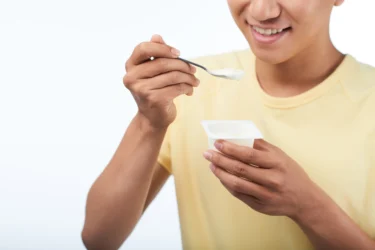
Dairy products, mainly yoghurt, are very nutritious and help to provide iodine to some extent. Iodine is needed for the optimal functioning of the thyroid gland3.
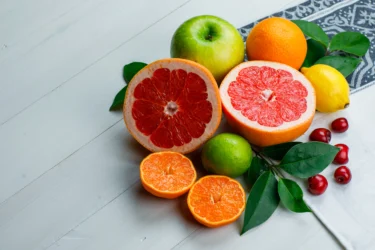
Apples, pears, plums and citrus fruits are abundant with pectins15, which might help with detoxifying the body of mercury4. It is postulated that mercury exposure from seafood might at times contribute to the disruption of thyroid gland function5.
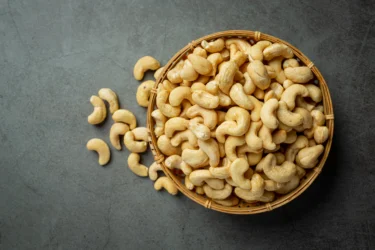
Pumpkin seeds, sunflower seeds and nuts are rich sources of zinc6. Low levels of Zinc have been associated with thyroid problems7. Add to the salads or munch on these as snacks to replenish your body with zinc.
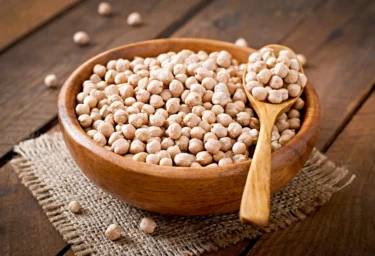
Beans and legumes are rich, not just in Zinc but fibre as well. These help to regulate the digestive system, especially bowel movement and prevent constipation8.
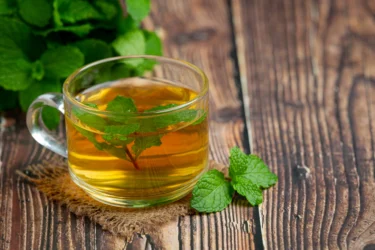
Hail the Orient. Green tea is known all over the world as an aid to boost metabolism. Green tea has catechins, a kind of antioxidant that might prompt fat cells to release the fat and help the liver burn off the excess fat9.
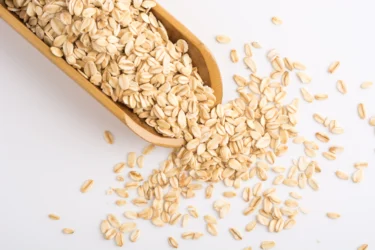
The body uses up more energy to digest whole grains. The metabolism might increase with the extra fibre as the body has to work harder to break down the whole grains. Try to eat oats, brown rice, sprouts, sprouted grain bread and quinoa as a part of a healthy diet routine.
Just like Zinc, Selenium is believed to be another micronutrient that is essential for healthy thyroid functioning. Selenium is present in food items such as eggs, fish, meat, cereals and nuts10.
Dr. Siddharth Gupta, B.A.M.S, M.D (Ayu)

Avocados are almost the wonder food of modern nutrition. Packed with antioxidants, good fats, fibre and essential nutrients, avocado is a good choice for those who have an imbalanced functioning thyroid, to support overall health and wellbeing.

Broccoli is rich in calcium and vitamin C. It is rich in fibre. Broccoli when consumed in very large amounts, can potentially add goitrogens and might cause disturbance in those with underlying iodine insufficiency11, 12. However, when consumed in moderate amounts, it can help with a healthy metabolism pattern and overall well-being.
Consult your dietician or your doctor before you incorporate the above foods into your diet.
Also Read: Typhoid – What to Eat and What to Avoid?
Apart from the above, here are some other things to be mindful of if you have a thyroid problem:
Also Read: What to Eat and What to Avoid in Anal Fistula
Some ways to keep hypothyroidism under a healthy check are as follows:
– Include aerobic exercises that make you sweat, such as cycling, swimming and running.
– Better Stress management is essential for better overall health and thyroid hormone-related imbalances
– Follow a good power-down routine every night by ensuring 6-7 hours of quality sleep to balance hormone levels.
– Stay on track with your thyroid medications.
If you have been diagnosed with hypothyroidism, you should avoid foods like tofu, soy, fried and fatty foods, sugary foods, processed and packaged items and alcohol.
Some tell-tale signs that you might be having an underlying condition of hypothyroidism are14:
– Fatigue
– Hypersensitivity to cold
– Dry skin
– Puffy face
– Hoarseness
– Muscle weakness
– Weight gain
– Impaired memory
– Slow heart rate
Disclaimer: The information provided here is for educational/awareness purposes only and is not intended to be a substitute for medical treatment by a healthcare professional and should not be relied upon to diagnose or treat any medical condition. The reader should consult a registered medical practitioner to determine the appropriateness of the information and before consuming any medication. PharmEasy does not provide any guarantee or warranty (express or implied) regarding the accuracy, adequacy, completeness, legality, reliability or usefulness of the information; and disclaims any liability arising thereof.
Did you know that a healthy sex life can benefit you in many ways? Besides being a way to make love with your partner, it can positively affect your overall health. Not only does it offer reproductive benefits, but healthy sex could improve your physical, mental, emotional, and social life too1.
In this article will provide you an insight about the health benefits of a good sex life and answers questions around how to improve your sex life. We’ll also look into a common query about frequency of sex and if making out everyday has special benefits.
A healthy sex life means understanding your partner well in bed and seeing what he/she wants the most. This will improve your sexual intimacy by making your sex life more interesting, and intimacy should always be consensual. Here are some health benefits of healthy sexual intercourse:
Intense sex makes your body release happy hormones called oxytocin and endorphins that boost intimacy and the urge to do it repeatedly1. These neurohormones aid in better sleep quality and a good sleep can help keeps you energetic through the day and boost your immune system.
Sex reduces stress by increasing endorphin hormones that are responsible for boosting mood. It is a form of exercise that can help lower stress and keep you calm2. Yet, remember there are other methods (e.g., exercise, meditation, therapy) too that are effective for relieving stress and often more practical.
Excessive stress can contribute to elevated blood pressure. Sex helps by countering stress thereby avoiding the risks of developing a high blood pressure2. Masturbation can also temporarily reduce stress and lower hypertension risk, although there’s no direct evidence that it works in long-term. Further studies are needed to corroborate these findings.
Sexual activity may help reduce stress hormones in both men and women and thereby help in reducing stress. Since stress is directly affects ageing, regular sex can have indirect benefits for skin appearance3. This coupled with the happiness of a healthy relationship and positive thinking can give your skin a radiant glow.
Having sex during your period can actually ease the pain. Orgasms during sex can relieve menstrual cramps by releasing endorphins and causing uterine muscle relaxation, but this varies between individuals. It could be an uncomfortable feeling to do so, but it does help, and there are fewer risks of getting pregnant4.
The more sex you have, the more it naturally increases your sexual pleasures and desires. More sex aids in a longer, healthier, and stress-free life. But remember, a healthy relationship and good understanding are important factors in love-making, so pay attention to your partners needs and ques for a good sex life1,2.
Regular sex may help lower the risks of heart diseases such as stroke and high blood pressure. Moderately frequent sex can be a form of cardio activity and may strengthen the heart and make it function better1,2. However, sex may have only temporary effect and is not equivalent to sustained aerobic exercise, which is more effective for long-term heart health. More large-scale studies can help confirm this benefit.
Regular sex can help you lose weight!. Yes, daily sex is a natural way to burn calories. You can burn an estimated 3.6 kcal/min of sexual activity performed at moderate intensity5.
A healthy lifestyle, which includes regular sexual activity, contributes to improved well-being and possibly a longer life span. But sex is not the primary determinant of longevity and factors like diet, exercise, and genetics play a larger role6.
In general, men have more testosterone and less oestrogen, the opposite is true for women. Regular sex boosts the production of both these hormones in males and females7. This results in better sex drive, and possibly a stronger musculoskeletal system, and better heart health
One of the benefits of regular sex, similar to that of regular exercise, is that it helps stave off depression. Sex releases hormones like dopamine, serotonin, endorphins, as well as oxytocin which are the feel-good hormones that help to increase your happiness quotient and lower your risk of going into a depressive state. A note, however, is that a sudden lack of stimulation or reduction in sexual activity may lead to temporary mood changes or frustration for some. It’s important to deal with these positively1,2.
According to some studies8, regular sex is shown to help in nerve regeneration and memory function. It can stimulate the hippocampus, which is a part of your brain involved in memorization and learning, and negate the effects of chronic stress. Further studies are needed to prove this association.
NOTE: Getting an orgasm or masturbating can also aid in the above-mentioned benefits!
So, taking about the ideal frequency of sexual intercourse, the more it is, the better it is for your health and overall well-being! However, it’s important to understand that for a good sex life, more than the frequency, it’s the quality that matters. Frequency can be daily, once a week or even once a month, whatever both the partners are comfortable with.
Also Read: Natural Home Remedies for Breast Pain
A good sex life is determined by prioritizing your partner’s needs over yours. That’s the very first step to a successful relationship. Once you’ve got this, you can follow certain sex-boosting hacks to get the best out of you and your partner.
Bonus tip: Talk to your partner about your feelings: This is one way to get you both in the mood. Feel free to talk about your sexual desires to your partner and know his/her side of it too.
Also Read: Home Remedies For Vaginal Yeast Infection
Regular sex can have several health benefits, including relieving stress, burning calories, lowering risks of hypertension and heart disease, and boosting libido (sex drive). Despite the potential benefits, it is important to understand that the frequency of sex is not a measure of the love or happiness you share in your relationship. The ideal frequency is the one that is comfortable for both partners. It is important to discuss your and your partner’s sexual needs and desires to have a fulfilling sex life and reap its health benefits.
Also Read: 8 Gentle Exercises That Can Help Ease Period Discomfort
Here are some foods that may help improve your sex drive.
-Strawberries
-Walnuts
-Avocado
-Almonds
-Watermelons
-Garlic
However, more research is needed to confirm these claims.
NOTE: If you regularly consume alcohol, try to give it a break for some time. This will help you concentrate on making your partner feel the best in bed.
Yes, women have a better control over their sexual feelings. They might also live without the desire for sex for longer periods than men. Though they love sex, they need to stay safe before getting into sexual activity, which helps them decide if they need it or not. So, instill trust in your partner and be sensitive to the feelings that will make her give her best to you.
A semen analysis test is done to see if the man’s sperm count is in the healthy range. It is recommended that you do this before marriage to stay on the safer side. While male infertility is a factor in many cases, female infertility is also common. About one-third of infertility cases are attributed to male factors, one-third to female factors, and one-third to both or unexplained causes.
Tests for sexually transmitted infections should also be done.
Many people debate about the safety and merits of period sex. Unless you are extremely uncomfortable with the idea of having sex during your period, it is completely safe to do so. Additionally, when you have sex during your period you can enjoy the following benefits:
-Shorter period: muscle contractions at the time of period tend to push out uterine content faster making your period short.
-Increased libido: Many women have reported increased sex drive during their period which means they will experience greater pleasure
–Relief from period pain: At the time of orgasm, the uterine muscles contract and then release, which lowers the pain associated with cramps
In most cases, it is safe to have sex during your pregnancy. The baby is protected by the amniotic fluid and the uterus’s muscular walls. So, there is no risk of harming the baby during penetrative sex. However, you should avoid sex if your doctor has specifically asked you to due to past history of miscarriages, your placenta is too low in the uterus, you are expecting twins or triplets or you are in the final weeks of your pregnancy.
You should ideally wait for about 4-6 weeks before you can resume your sexual activity after you have given birth. If you feel uncomfortable even after 6 weeks, ensure to wait a little longer. Talk to your doctor about this.
Disclaimer: The information provided here is for educational/awareness purposes only and is not intended to be a substitute for medical treatment by a healthcare professional and should not be relied upon to diagnose or treat any medical condition. The reader should consult a registered medical practitioner to determine the appropriateness of the information and before consuming any medication. PharmEasy does not provide any guarantee or warranty (express or implied) regarding the accuracy, adequacy, completeness, legality, reliability or usefulness of the information; and disclaims any liability arising thereof.
Many individuals commonly experience under-eye dark circles. When it occurs, we feel self-conscious. But don’t worry, you are not the only one who is faced with this problem. Many well-known individuals in the world have encountered this problem at some point in their lives and have had to resort to make-up and concealers to hide these dark circles.
Since the skin around the eyes is sensitive, it’s best to opt for natural remedies for the dark circles rather than using chemical-based products. So, here’s a list of simple and easily doable home remedies for dark circles that may help revitalise your under-eye skin.
Before we learn how to manage dark circles, let’s understand why they occur. The causes of dark circles include1:
Dark circles may also be caused by fat reduction around the eyes, touching or rubbing the eyes often, smoking, hangover, sudden and extreme weight loss, and darker skin.
Dark circles are a common beauty concern. Dark circles are of different types and each type is linked to specific causes.
Knowing the exact kind of dark circles you have is important for using the right solutions. Customised treatments, like using special creams or changing daily habits, may help to reduce and improve dark circles based on their cause.

One of the most commonly used and easy ways to reduce dark under-eye circles is to use cold tea bags. Green tea or chamomile tea bags are recommended for faster relief. It is thought that the residual caffeine in tea bags helps to constrict blood vessels, which reduces blood flow to that area, helping to provide some relief from dark circles2.
How to Use Cold Tea Bags?
Let the tea bags soak in water, cool them in the fridge, and then rest them over your eyes for about 10 to 15 minutes. Repeat regularly.

This is, by far, one of the most commonly used home remedies for dark circles. Grated potatoes and cucumbers also aid in reducing the puffiness around the eyes. The vitamins and antioxidants in these cooling veggies and their anti-inflammatory nature helps to reduce inflammation around the eyes while also helping to stave off darkening2.
How to Use Grated Potatoes and Cucumbers?

Cold milk is a natural cleanser for the eyes and is known to help remove dark circles under the eyes while soothing the sensitive under-eye skin. The lactic acid in cold milk may reduce swelling and brighten the skin tone. Additionally, potassium in milk allows the skin to stay better moisturised, leaving you with soft and supple skin3.
How to Use Cold Milk?

The way we sleep also affects the area surrounding our eyes. You may be able to prevent fluid buildup under the eyes that can cause puffiness and swelling by elevating your head with a few extra pillows. This simple change can help improve dark circles and may lead to overall improvement in the appearance of the area surrounding the eyes4.
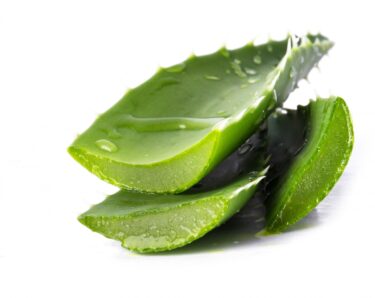
Moisturised skin is less likely to sag and will stay healthy longer. Aloe Vera, which is an effective moisturiser, may help reduce dark circles, nourish the skin, and prevent premature ageing5.
How to Use Aloe Vera?

A popular remedy involves blending almond oil with lemon juice. The vitamin E and antioxidants in almond oil may help address dark circles. Lemon juice’s active component is ascorbic acid and other nutrients. This remedy may also aid in decreasing water retention that causes puffiness around the eyes. It also has a mild skin lightening effect; however, when used undiluted, it can have the opposite effect and cause damage to the skin, so always use caution6.
How to Use Almond Oil & Lemon Juice?

This one can surely be termed as a traditional secret dark circles home remedy! Rosewater is refreshing, rejuvenating and may be used on almost all skin types and for all skin-related issues. It’s a mild astringent and can be used as an effective skin toner too7.
How to Use Rosewater?
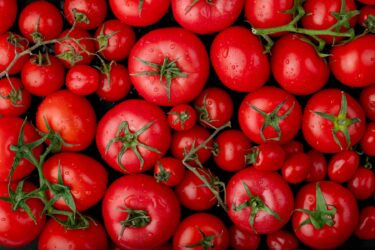
Tomatoes naturally help lighten the skin. They also contain antioxidants that help to lighten the discolouration around the eyes6.
How to Use Tomatoes for Dark Circles?

Stress, low mood, and irregular routines are often linked to the appearance of dark circles. Thus, one of the most prudent ways to deal with dark circles is to stay calm and composed. But as stress is an integral part of our life, this is not always possible. Hence, it is beneficial to make Yoga and Meditation an everyday ritual!
Yoga not only calms the mind but also helps to regulate the body clock and, most importantly, it addresses most body problems from the core8.

Arguably, one of the most important factors to consider when you’re trying to get rid of under-eye dark circles permanently at home is getting enough sleep on a regular basis. Regular sleep ensures that your body (and thus, your skin) has enough time to rest, repair and regenerate. This improves the appearance of your skin as well as your overall health. One of the first things that reveal our internal health is poor skin condition. Proper sleep on a regular basis can be your biggest weapon against preventing and reducing dark circles in the long term9.
In my opinion, to avoid fluid accumulating below the eyes at night, elevate the head with an additional pillow. This might work as an easy remedy for dark circles by constricting the dilated blood vessels and reducing the darkness around the eye. It may also aid in reducing the puffiness around the eyes.
Dr. Siddharth Gupta, B.A.M.S, M.D (Ayu)
Apart from the above natural treatments for dark circles under the eyes, there are a number of other home remedies. Here is a quick list of some great alternative options10:
Studies have found that cool spoons placed over your eyes can assist in constricting the dilated blood vessels that result in darkness around the eyes. This may lessen the look of dark circles.
Dr. Rajeev Singh, BAMS
Also Read: Natural Home Remedies For Dark Neck
Dark circles are quite common, and they don’t have to be the end of the world. The best way to keep them in control is naturally. Follow these simple guidelines and you should be able to manage your dark circles very well.
Read More: 16 Home Remedies for Glowing Skin
Dark circles can be attributed to various factors such as genetics, lack of sleep, dehydration, allergies, stress, smoking, excessive alcohol consumption, and ageing. This is often worsened by thin skin and prominent blood vessels around the eyes.
Aloe vera is a tropical plant that is often used as a natural remedy for dark circles. While more human studies are required, aloe vera is believed to hydrate the skin, soothe inflammation, and possibly reduce the appearance of dark circles.
Applying a cold compress may ease swelling and reduce the size of enlarged blood vessels under the eyes. Applying a cold compress can also help reduce the puffiness that causes dark circles. All you need to do is wrap ice cubes in a clean cloth and rub them gently around the eyes.
Dark circles may result from genetic, lifestyle, or age-related causes, and are often not permanent. While some may fade with improved sleep and skincare, others may require targeted treatments for a more lasting solution.
Yes, dark circles can be genetic, with hereditary factors influencing the thinness of the skin and the tendency to develop pigmentation around the eyes. While genetics do play a role in developing dark circles, lifestyle changes and skincare can still help manage and reduce their appearance.
While dark circles may not be completely resolved, various treatments and lifestyle changes, such as proper sleep, hydration, and skincare, can significantly reduce their appearance. Targeted interventions, like topical creams and medical procedures, can also provide effective solutions for managing and minimising dark circles.
It’s entirely normal for many people to experience dark circles from time to time. Factors like genetics, ageing, lack of sleep, and allergies can contribute to their appearance.
Dark circles can be related to liver issues. Liver dysfunction may lead to the accumulation of toxins in the body, affecting blood circulation and causing dark circles under the eyes. However, various factors contribute to dark circles, and consultation with a healthcare professional is advisable for a comprehensive assessment.
Yes, retinol may be effective for dark circles as it promotes collagen production and improves skin texture. Its exfoliating properties may help reduce pigmentation, but consistent use and patience are key for noticeable results.
While some people claim that castor oil can reduce dark circles due to its moisturising properties, scientific evidence supporting its effectiveness is limited. Individual responses may vary, and it’s advisable to consult with a dermatologist for personalised advice on addressing dark circles.
The caffeine in coffee has vasoconstrictive properties that may temporarily reduce puffiness and improve the appearance of dark circles. However, its effects are often short-term, and long-term solutions may require a combination of lifestyle changes and skincare practices.
While some people find coconut oil moisturising, scientific evidence on its efficacy for dark circles is limited. Individual responses vary, so it’s advisable to explore a range of skincare options and consult with a dermatologist for personalised advice.
Vitamin C may be beneficial for dark circles as it helps brighten the skin and reduce pigmentation. Its antioxidant properties also support collagen production, enhancing skin elasticity and reducing the appearance of dark circles.
Vitamin E’s antioxidant properties can contribute to reducing dark circles by promoting skin hydration and protecting against damage. Adding vitamin E to your skincare regimen may support the health and appearance of the delicate under-eye skin.
Yes, anaemia, characterised by low levels of red blood cells or haemoglobin, may lead to dark circles under the eyes due to reduced oxygen delivery to the tissues. Addressing anaemia through proper medical treatment may help alleviate the appearance of dark circles.
Yes, stress can contribute to the development of dark circles by affecting sleep quality, blood circulation, and skin health. Managing stress through relaxation techniques and self-care may help reduce the appearance of dark circles.
While the complete removal of dark circles may be challenging, natural remedies like proper sleep, hydration, and topical treatments such as cucumber slices or cold tea bags may help reduce the appearance of dark circles. Consistent care and a healthy lifestyle can contribute to a natural improvement in the skin around the eyes.
Laser treatments may be effective in reducing the appearance of dark circles by targeting pigmentation and promoting collagen production. However, results vary, and consultation with a dermatologist is recommended to determine the most suitable approach based on individual needs.
Yes, smoking can contribute to dark circles by constricting blood vessels and reducing oxygen flow to the skin, leading to a tired and dull complexion. Giving up smoking and following a consistent skincare routine may help reduce visible dark circles.
Yes, certain eye creams formulated with ingredients like vitamin C, retinol, and peptides can help reduce the appearance of dark circles by improving skin texture and promoting collagen production. However, individual responses vary, and consistent use over time is often necessary for noticeable results.
To naturally reduce dark circles under the eyes quickly, ensure adequate sleep, stay hydrated, and apply soothing remedies like cold compresses or cucumber slices to reduce puffiness. Additionally, incorporating a balanced diet rich in vitamins, especially vitamin C and K and antioxidants can promote skin health and diminish the appearance of dark circles.
Dark circles may be reversible through lifestyle changes, adequate sleep, and skincare routines. However, genetic factors and certain medical conditions in some individuals may influence the results in some individuals.
Disclaimer: The information provided here is for educational/awareness purposes only and is not intended to be a substitute for medical treatment by a healthcare professional and should not be relied upon to diagnose or treat any medical condition. The reader should consult a registered medical practitioner to determine the appropriateness of the information and before consuming any medication. PharmEasy does not provide any guarantee or warranty (express or implied) regarding the accuracy, adequacy, completeness, legality, reliability or usefulness of the information; and disclaims any liability arising thereof.
Dandruff is also known as Seborrhoea which is an endogenous eczema of the oily areas of the scalp, and sometimes even the moustache, beard, and eyebrows. It is not a condition that can be permanently “cured”, in the traditional sense, nor is there a one-time solution. Rather, it is a chronic issue that tends to require ongoing management.
Home remedies may help with mild cases of dandruff. However, when the condition is severe, it is advised to seek medical treatment which can help manage this problem1.
Dandruff is more than just an aesthetic concern, it’s often the result of complex underlying factors, including the presence of a common scalp fungus. One of the primary causes is a yeast-like fungus called Malassezia, which naturally exists on the scalp. However, when it begins to grow excessively, it can lead to irritation, scalp damage, and severe dryness. Here are some of the factors that may contribute to the development of dandruff1,2:
Dandruff can be of various types, each presenting with distinct characteristics and requiring tailored treatment approaches. These include3,4,5:
Understanding the type of dandruff you have is crucial for effective care. Consult a skin doctor (dermatologist) to identify the exact type of dandruff and get the right treatment for long-lasting relief.
| Signs | Causes | Risk Factors |
| Flaky skin from scalp, eyebrows, shoulders | Skin irritants Oily skin Dry skin Skin conditions like psoriasis, eczema | Age: typically occurs in young adults and continues to middle age (may be lifelong) |
| Itchiness on the scalp | Reaction to harsh chemicals in hair products | Sex: Males are more likely to develop dandruff than females |
| Scaly skin with a crusty appearance (particularly in infants) | Malassezia yeast infection | Existing illnesses: HIV, Parkinson’s and diseases affecting the immune system may all increase the risk of developing dandruff |
If you’re looking for a more natural way to manage dandruff, there are many natural dandruff home remedies that may be beneficial.
However, it’s important to understand that achieving noticeable results requires more than simply applying a mixture to your scalp. You will need to gather the right ingredients (many of which may already be in your kitchen) and combine them in the proper ratios. Once prepared, each mixture should be applied following a recommended method to ensure maximum benefit.
Natural treatments can be a great option for mild dandruff and as part of a regular scalp care routine. While they may not offer a permanent “cure,” they can significantly reduce the visible signs of dandruff and help restore your confidence by keeping your scalp clean, calm, and flake-free6. If you’re wondering how to get rid of dandruff naturally, let us understand how regular care can maintain and keep the scalp inflammation free for longer.

ACV is said to be one of the best natural remedies to treat severe dandruff. However, there is a prescribed way in which you need to prepare the paste. Here are some easy steps you need to know for preparing ACV for dandruff4,5.
Preparation of ACV Solution:
Note: You should not excessively use ACV on your hair; daily application is not recommended. You may find it beneficial to use it once every two days for dandruff but ensure to seek prior guidance from a dermatologist.
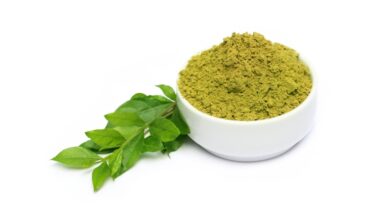
You may benefit from using henna for dandruff. Henna helps clean the scalp and softens hair. Here is how you can prepare the henna mix for your hair4.
Preparation of the Henna Mixture:
Henna needs to be prepared the right way and this mix has a prescribed manner in which it needs to be prepared so make sure you talk to a doctor before using this for your hair. A general guideline is as follows:
Note: Henna is natural and this is one simple way that may help you get rid of dandruff..

Coconut oil helps keep the hair nourished, and when this is mixed with a little lemon juice, it may help in reducing dandruff. Follow these simple tips with the advice of a dermatologist, to help with dandruff4,8.
Preparation of Coconut Oil with Lemon:
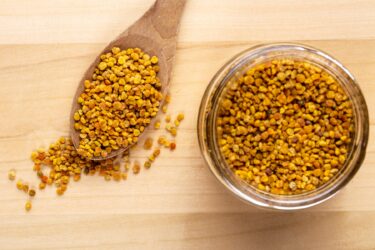
Fenugreek seeds or methi seeds are used to help reduce dandruff4,8.
Preparation of the Fenugreek Seeds Mixture:

Curd applied to your hair may be effective to help with dandruff4.
Preparation of Curd for Dandruff:
Here are some easy tips to help with dandruff using curd. Here is how you do it.

Neem has beneficial properties that may help with dandruff. This herb is found in most shampoos as one of the main ingredients. If you’re seeking an effective dandruff treatment at home, incorporating neem into your routine can be a natural and convenient dandruff solution10.
Preparation of Neem Juice:
Here is how you prepare neem juice mix before applying it to your hair and this will help cure dandruff.
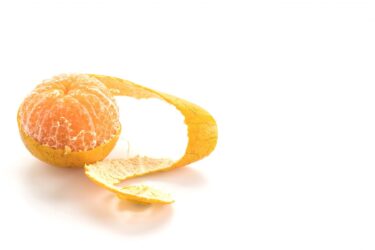
Orange peel is said to work well as a very good remedy for treating dandruff at home. But you need to keep in mind as for how you need to prepare this mix. Orange peel is said to contain calcium, magnesium, vitamin A and dietary fibres which are good for your body. Orange peel can be made as a mixture in the following manner and applied to your scalp and hair to help with dandruff4.
Preparation of the Orange Peel Mixture:
Note: Use it for least thrice a week to see results.

Vinegar has medicinal properties that can help remove fungus and this can be seen as an easy remedy to get rid of dandruff the easy way. This also helps in treating various skin related problems like acne and itchiness in the scalp4.
Preparation of the Vinegar Mixture:
Here are some easy steps that you need to keep in mind while preparing vinegar mix to get rid of dandruff.
Note: You can use this in the morning before you apply shampoo in your hair. Vinegar will help reduce the dryness and remove the itchiness that you are facing.

Egg yolk contains biotin which is a vitamin that helps with dandruff. Egg yolks can act as conditioners for your hair that can make it healthier9. For those seeking effective home remedies for dandruff, incorporating egg yolk into a hair care routine may provide a natural and nourishing solution.
Preparation of the Egg Yolk Mixture:
In order to prepare the egg yolk mixture, you will have to remove the white layer that surrounds the yolk. Always remember that the yolk is more beneficial than the white layer that surrounds it. Here are some simple steps that you need to follow when you are making egg yolks.
Note: You can follow this method to help with dandruff in the morning while having a bath or anytime as per your bath schedule. You may need to do this thrice a week to see results.

Green tea has antifungal properties and it is an antioxidant that can restore the health of the scalp7.
Preparation of Green Tea:
Note: This can be followed in the mornings when bathing.

Basil leaves have antifungal and antibacterial properties that can help with dandruff. These leaves can also help your scalp become strong and stay healthy4,8.
Preparation of the Basil Leaves Paste:
Note: You need to incorporate this to your hair care routine as recommended by a doctor to observe results.

Olive oil may help strengthen the scalp, promoting overall hair health4,8.
Preparation of Olive Oil:
Note: You can also apply some olive oil before you go to bed. Wrap your hair with a towel and let it absorb overnight and wash the hair in the morning with shampoo.
Mouthwash have antifungal properties that can fight the yeast responsible for preventing the growth of this yeast8.
Preparation of the Mouthwash Solution:
Note: You can do this in the mornings during your shower.
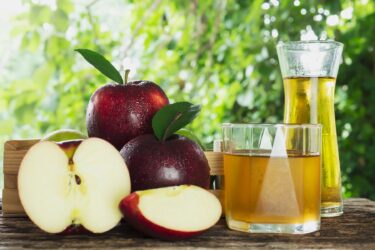
Banana and ACV may help with dandruff. This is because bananas are rich in vitamin B which helps in improving blood circulation and keeps skin healthy, while, ACV is known for its fungicidal properties4.
Preparing the Mixture of Banana with ACV:
Note: You can use this method early mornings or in the night before having your shower.

Garlic has antifungal properties that may help reduce certain microbes that are responsible for causing dandruff4.
Preparation of the Garlic Paste:
Note: You may find it helpful to use this natural method for dandruff by using it in the mornings or in the night before you have a shower.
Simple dietary modifications can play an important role in reducing the appearance of dandruff. Ensure to consult a doctor before making any changes to your diet4.
Some dietary changes include:
Getting rid of dandruff can be a burden, however, if you follow these simple steps on a day-to-day basis, you may find it helpful1.
Correct diagnosis and treatment by a dermatologist are crucial, as dandruff is often mistaken for other conditions such as psoriasis, which results from a fungal infection on the scalp. The use of appropriate antifungal shampoos or lotions recommended by a dermatologist is necessary for addressing dandruff, as home remedies alone may be inadequate.
Dr. Arpit Verma, MBBS, MD (Pharmacology)
Dandruff can be effectively managed with the right care, whether through natural remedies or medical treatment. Understanding your scalp type and the right treatment is key to long-term relief and healthier hair. Always consult a doctor before trying anything new to make sure it is right for your situation.
Yes. While often overlooked, a scalp brush can help reduce dandruff in several ways:
– Removes buildup: Helps eliminate excess oil and dead skin cells that contribute to dandruff. Use the brush in small, circular motions to avoid tangling.
– Enhances shampoo effectiveness: Using a scalp brush while shampooing can improve cleansing and product absorption.
– Stimulates the scalp: Regular use (2 to 3 times per week) can improve blood circulation, promote hair growth, and strengthen hair shafts.
Dandruff can occur at any time of the year, but it is more common during the winter months when the scalp becomes itchy and dry, and itching can lead to flakes that build up and cause dandruff. To manage it, use a moisturising shampoo 2 to times a week, oil your scalp, and avoid heat styling, which can further dry out the scalp.
No, dandruff is not contagious. It is a non-infectious scalp condition caused by factors like genetics, an oily scalp, dry skin, or sensitivity to hair care products.
Yes. Stress doesn’t directly cause dandruff but can worsen existing scalp conditions by affecting the immune system and hormone levels. Managing stress can help improve scalp health.
Dandruff does not directly cause hair loss, untreated severe dandruff may lead to scalp inflammation, which can contribute to temporary hair shedding.
Dandruff can be effectively reduced through various methods:
– Using anti-dandruff shampoos containing active ingredients like pyrithione, zinc, or ketoconazole.
– Regularly washing the hair with a gentle shampoo to keep the scalp clean.
– Managing stress levels, as stress can worsen dandruff.
– Identifying and addressing any underlying scalp conditions.
– Practising good scalp hygiene and avoiding scratching to prevent scalp irritation.
Yes, curd can help remove dandruff. Its natural properties, such as lactic acid and probiotics, help soothe the scalp, reduce itchiness, and control dandruff when applied regularly as a hair mask or treatment.
There is no direct evidence linking dandruff to acne. Dandruff is primarily a scalp condition, while acne is associated with the skin’s oil glands and hair follicles. It’s advisable to consult a dermatologist for personalised advice.
There is no scientific evidence supporting the idea that dandruff causes the premature greying of hair. Greying is primarily influenced by genetics and age-related factors, while dandruff is a scalp condition related to the overgrowth of yeast and shedding of skin cells.
No, dandruff itself does not cause lice. Lice are typically spread through direct head-to-head contact or by sharing personal items like combs and hats. While dandruff and lice both affect the scalp, they have different causes and require distinct treatments.
Yes, dandruff can cause itching. The flakes and irritation associated with dandruff can lead to an itchy scalp, causing discomfort and the urge to scratch.
1. Australia H. Dandruff [Internet]. www.healthdirect.gov.au. 2023 [cited 2025 May 5]. Available from: https://www.healthdirect.gov.au/dandruff
2. Services D of H & H. Dandruff and itching scalp [Internet]. www.betterhealth.vic.gov.au. [cited 2025 May 5]. Available from: https://www.betterhealth.vic.gov.au/health/conditionsandtreatments/dandruff-and-itching-scalp
3. (PDF) AN OVERVIEW OF DANDRUFF AND NOVEL FORMULATIONS AS A TREATMENT STRATEGY. ResearchGate [Internet]. [cited 2025 May 5]; Available from: https://www.researchgate.net/publication/322931819_AN_OVERVIEW_OF_DANDRUFF_AND_NOVEL_FORMULATIONS_AS_A_TREATMENT_STRATEGY
4. Kronika Journal – ISSN:0023-4923 || Scopus Indexed Journal [Internet]. Kronika.ac. 2023 [cited 2025 May 5]. Available from: https://kronika.ac/wp-content/uploads/5-KKJ2356.pdf
5. Staff Dermatologists org. How to Get Rid of Dandruff: An Expert Guide — Dermatologists.org [Internet]. Dermatologists.org. 2023 [cited 2025 May 5]. Available from: https://www.dermatologists.org/dandruff/
6. Zaid AN, Jaradat NA, Eid AM, Al Zabadi H, Alkaiyat A, Darwish SA. Ethnopharmacological survey of home remedies used for treatment of hair and scalp and their methods of preparation in the West Bank-Palestine. BMC Complementary and Alternative Medicine [Internet]. 2017 Jul 5 [cited 2025 May 5];17(1). Available from: https://pmc.ncbi.nlm.nih.gov/articles/PMC5499037/
7. Chanchanok Nualsri, Nattaya Lourith, Mayuree Kanlayavattanakul. Development and clinical evaluation of green tea hair tonic for greasy scalp treatment. Journal of Cosmetic Science [Internet]. 2016 May [cited 2025 May 5];67(3):161–6. Available from: https://www.researchgate.net/publication/308149951_Development_and_clinical_evaluation_of_green_tea_hair_tonic_for_greasy_scalp_treatment
8. Gamage DGND, Dharmadasa RM, Abeysinghe DC, Wijesekara RGS, Prathapasinghe GA, Someya T. Ethnopharmacological Survey on Medicinal Plants Used for Cosmetic Treatments in Traditional and Ayurveda Systems of Medicine in Sri Lanka. Ullah R, editor. Evidence-Based Complementary and Alternative Medicine [Internet]. 2021 Jun 26 [cited 2025 May 5];2021:1–15. Available from: https://pmc.ncbi.nlm.nih.gov/articles/PMC8257331/
9. Jung J, Kwon KH. Rethinking of positive effects of eggs on hair in East Asia. Journal of Cosmetic Dermatology [Internet]. 2022 Nov 14 [cited 2025 May 5]; Available from: https://www.researchgate.net/publication/364366473_Rethinking_of_Positive_Effects_of_Eggs_on_Hair_in_East_Asia_A_Critical_Review
10. Sang SH, Gabriel Akyirem Akuwoah, Kai Bin Liew, Lee SK, Keng JW, Lee SK, et al. Natural alternatives from your garden for hair care: Revisiting the benefits of tropical herbs. Heliyon [Internet]. 2023 Nov 1 [cited 2025 May 5];9(11):e21876–6. Available from: https://www.ncbi.nlm.nih.gov/pmc/articles/PMC10685248/#:~:text=In%20recent%20years%2C%20there%20is
Disclaimer: The information provided here is for educational/awareness purposes only and is not intended to be a substitute for medical treatment by a healthcare professional and should not be relied upon to diagnose or treat any medical condition. The reader should consult a registered medical practitioner to determine the appropriateness of the information and before consuming any medication. PharmEasy does not provide any guarantee or warranty (express or implied) regarding the accuracy, adequacy, completeness, legality, reliability or usefulness of the information; and disclaims any liability arising thereof.
Noticing a white patch on your skin can be concerning, but it is important to seek medical advice right away. White patches can be of two types: hypopigmentation (lightening of the skin) or depigmentation (complete loss of pigmentation cells). The severity of the condition depends on how quickly the patches spread and which areas are affected[8].
Avoid self-medication or waiting too long to see if it improves, as this may worsen the condition. If you spot any white patches or spots, whether hypo-pigmented or de-pigmented, make sure to consult a dermatologist as soon as possible[5].
Friendly Reminder: The information shared here is for educational purposes only and the reader should consult a registered medical practitioner before implementing any changes to their health routine.
White patches, caused by the complete loss of melanocytes (skin pigmentation cells) due to an autoimmune reaction within the skin, are seen in vitiligo. Commonly referred to as “kodh” in Hindi , vitiligo is a chronic autoimmune disorder[1] that leads to discolouration of skin, ranging from small patches to generalised (all over the body) areas. In many cases, this condition also affects hair colour as well.
Researchers say that lack of melanin, a skin pigment, is what causes vitiligo[10]. Melanin, which gives your skin its colour, is produced by skin cells called melanocytes. Destruction of melanocytes and lack of functioning melanocytes does not allow your skin to produce enough melanin when you have vitiligo. Your skin may start to develop white patches as a result.
Dr. Siddharth Gupta, B.A.M.S, M.D (Ayu)
Here are some other conditions that may present as whitish patches (lesions) on the skin due to certain reasons.
This is a self-limiting skin condition that commonly affects children. It typically appears on the face but can affect other areas of the body as well. Along with hypopigmented patches, it may also cause dryness and itching[6]. Proper moisturising and a balanced, nutritious diet can help treat and prevent Pityriasis Alba[3]. This condition may indicate skin sensitivity and a tendency to develop allergies.
Sunspots are white patches that form when the skin loses its tone, typically due to an allergic reaction to sun exposure. These spots usually appear on areas exposed to the sun, like the face, forearms, and the back of the neck. To prevent sun spots, it’s important to use sunscreen whenever exposed to sunlight. One can also use umbrellas, hats, goggles, and gloves to reduce sun exposure. This condition is medically known as “polymorphic light eruption.”
Leprosy is often confused with vitiligo due to the appearance of white patches, but it is a bacterial infection, not an autoimmune disorder. Leprosy, known as “raktpitt” in Hindi, causes white patches on the skin with sensory loss. Unlike vitiligo, which only affects the skin, leprosy can impact the skin, nerves, muscles, cartilage, respiratory tract, and even bones in extreme cases. It is crucial to differentiate between vitiligo and leprosy for proper treatment.
Here are some signs of skin discolouration in vitiligo to watch for:
Vitiligo can affect the skin in different ways. These are the types of vitiligo based on their appearance:
A dermatologist can evaluate the condition and suggest the best treatment depending on the type.
While the dermatologist will prescribe medication tailored to your condition, there are a few home remedies that can help alongside the prescribed treatment:
Also Read: 16 Simple Home Remedies for Glowing Skin!
If you notice a white patch on your skin, it’s important to consult a dermatologist immediately. You should seek professional help if:
It’s important to note that while vitiligo has no cure, the treatment focuses on slowing down the spread of white patches and restoring skin colour through cosmetic procedures when possible.
White patches on the skin can have various causes. We’ve covered the causes, symptoms, and management of vitiligo in detail. Vitiligo is not just a cosmetic concern; it often signals underlying autoimmune activity, which may be linked to other autoimmune disorders like autoimmune thyroiditis, IBS, and more. Hence it’s important to consult a doctor.
Additionally, counselling and family therapy can be beneficial in helping individuals with vitiligo accept their condition and build self-esteem. Raising awareness about vitiligo and educating society, especially in rural areas, is equally important for fostering better understanding and support.
Also Read: Beauty Benefits of Using Ice Cubes On The Skin
White patches, also medically termed as vitiligo, may not be cured completely in all cases but they can be managed. The treatment plan aims to stop the disease from spreading further.
It is a common myth and nothing more than that. Some people believe that the condition is caused by drinking milk or eating sour food such as lemons and oranges. The fact remains that Vitiligo is an auto-immune disease that has no direct relation to food and it is not caused by eating any specific food. The treatment is never aimed at avoiding any food, but yes, healthy eating habits are important for people with vitiligo.
Eczema, Seborrheic dermatitis and Psoriasis are some of the common causes of dry white patches on the skin, but they are different from vitiligo.
Disclaimer: The information provided here is for educational/awareness purposes only and is not intended to be a substitute for medical treatment by a healthcare professional and should not be relied upon to diagnose or treat any medical condition. The reader should consult a registered medical practitioner to determine the appropriateness of the information and before consuming any medication. PharmEasy does not provide any guarantee or warranty (express or implied) regarding the accuracy, adequacy, completeness, legality, reliability or usefulness of the information; and disclaims any liability arising thereof.
Proteins are an important part of our daily diet. They provide our muscles, cells, and vital tissues with the growth factors that are required to keep them healthy and functioning normally1.
In India, a large proportion of individuals prefer to follow a vegetarian diet. While this is a highly nutritious diet, it can sometimes be low in certain elements such as vitamin B12 and proteins. In clinical practice it is common to see vegetarians with low vitamin B12 levels, but clinical evidence also suggests that people who follow vegetarian diets have a lower incidence of developing heart disease and related complications1,2.
Proteins are made of building blocks called amino acids. Amino acids are essential for cell growth and development throughout our lifetime. Proteins form the basic structure of not just our vital organs, but also our skin, hair, and numerous other important parts of our body. If we consume lesser quantities of protein, we could lose muscle strength and muscle mass and become weaker. For individuals who are recovering from a medical illness, may find it beneficial to have a high protein diet to help in faster recovery3.
The following is a rough summary of daily protein requirements based on weight3,4.
Note that protein requirements will vary on the basis of sex, age, level of physical activity, and other factors like whether you are pregnant or breastfeeding3,5.
Let’s take a look at some of the protein-rich foods that are available to the vegetarians.
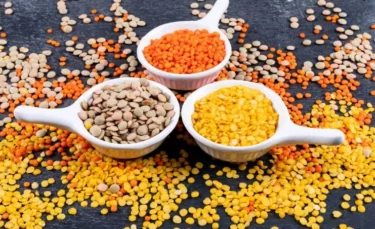
Lentils, also called daal, is a popular addition to an everyday meal in India. Each cup of lentils contains about 18 g of protein making it an excellent source of vegetarian protein2,5. Lentils can be had in the form of curries, soups, and are eaten with rotis or rice.
In addition to protein, lentils also contain a good quantity of fibre which can help maintain healthy bacteria within the gut. There is some understanding that regular consumption of lentils may also reduce the risk of developing heart disease and cancer6. However, a small number of individuals who consume lentils on a regular basis may notice excessive flatulence. This is not unique to lentils but is generally seen with a high protein diet7.
Lentils also contain quality antioxidants and numerous minerals which can help protect the cells. You may benefit from having a cup full of lentils every day to get your required dietary amount of protein, but make sure you plan your meals with a healthcare professional to attain maximum benefit.
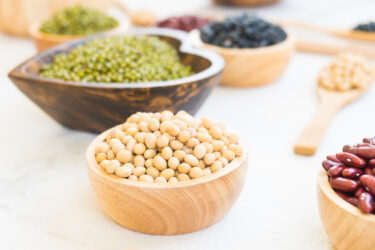
Legumes include varieties of beans such as kidney beans, black beans, chickpeas, and others which are widely considered to be a powerhouse of proteins. Chickpeas contain about 14 g of protein per serving and also contain numerous other elements and minerals that can keep you healthy, strong, and fit2. Clinical studies6 also found that regular consumption of legumes can help keep cholesterol levels low. Chickpeas and other legumes are great in salads or in the form of low-fat, low salt curries5.
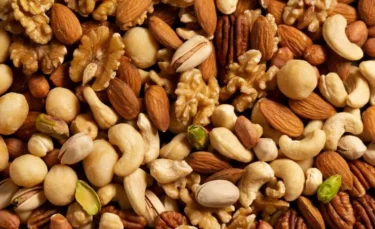
Nuts are superfoods. If follow a good veg protein diet, you should strongly consider adding nuts to the cavalry. Nuts such as almonds and cashew nuts are an excellent source of protein and are always included in the protein foods veg list1.
On average, eating about 20 to 25 whole almonds every day can give you about 6 g of protein2. However, this can be a lot to eat in one go so having a handful of mixed nuts every day may give you the protein boost your body requires. Nuts also contain a good amount of dietary fibre and vitamin E.
If you are looking for a heart-healthy snack and protein-rich food for vegetarians, you can include unsalted nuts as a part of your daily diet after consulting with a healthcare provider1.
We’re about to uncover a fascinating fact about protein one that sets it apart from fats and carbohydrates. Your body relies on protein to build and repair tissues, but unlike the others, protein cannot be stored as a reserve. This means that you may need to provide a continuous supply of protein through your diet to meet your body’s repair and maintenance needs.
Dr. Rajeev Singh, BAMS

Green peas are an excellent source of protein. A cup full of green peas gives you nearly 8 g of protein2. In addition to this, they are rich in vitamins A, K, and C and also contain numerous minerals and a high quantity of fibre. Simply including green peas in your daily vegetarian diet can help give you the additional protein your body requires1.
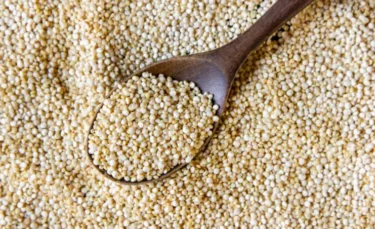
Quinoa is considered a food that is healthy, low in fat, and high in protein. Each cup of quinoa can provide around 9 grams of protein and can be beneficial for those who have diabetes2. They are rich in dietary fibre, which can help in keeping the blood sugar levels under control. Their glycaemic index (GI) is 53. Keeping in mind that GI of 55 or below is considered low, quinoa is an ideal food that can be included in a diabetic diet plan. You may refer to the Glycemic Index Food Chart to find out the GI of other foods. Besides these, quinoa also contains a high quantity of complex carbohydrates and numerous minerals. Quinoa is definitely one for the protein foods vegetarian list.

In recent years, soy milk has gained considerable attention as a valuable source of plant-based protein. It is particularly beneficial for individuals with lactose intolerance who require non-dairy protein alternatives. A single cup of soy milk contains approximately 8 grams of protein, making it a nutritionally significant option2. In addition to its protein content, soy milk is also a good source of calcium, vitamin B12, and vitamin D. However, the latter vitamins are usually present in soy milk that has been fortified.
Soy milk can be incorporated into the diet in various ways, such as an additive to tea or coffee, or consumed on its own. It is advisable to opt for unsweetened versions, as sweetened versions, as sweetened varieties may contribute to excess caloric intake and potentially decrease the health benefits of regular consumption.
Additionally, there are several products made from soy other than milk, which are also protein-rich. These include tofu (made from the curd of soy milk), edamame (a preparation made from immature soybeans, boiled or steamed) and tempeh (a fermented preparation native to Java, made in a cake form). These products have similar health benefits to soy milk as they retain their high protein content, and they also provide additional nutrients which are more filling than liquid soy milk. These products not only help to provide your daily requirement of protein but also help manage weight1.
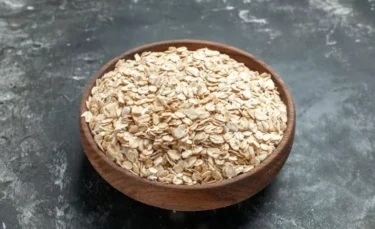
There is no doubt that oats are superfoods. Not only are they high in protein but they are a powerhouse of soluble fibre and clinically proven to help reduce the risk of developing heart disease and to lower cholesterol. A small cup of oats can provide you with nearly 6 g of protein and a quarter of your daily requirement of fibre2. They also help regulate blood sugar levels, owing to their high fibre content and low glycaemic index. You can take a look at the diabetes food chart to find other foods that can help control diabetes better.
Try to avoid masala oats or ready to eat meals as these contain higher quantities of salt or sodium and may not be the healthy start to the day that you hope you will get from them. Instead, buy regular oats and consume them with milk and a spoonful of honey sprinkled with almonds. You could even chop some fruit up into them or add a fistful of berries. You can make the same oats savoury too with a bowl of yoghurt and herbs for taste. A cup full of oats in the morning is a great way to start your day.
Also Read: 8 Most Effective Foods To Fight Thyroid!
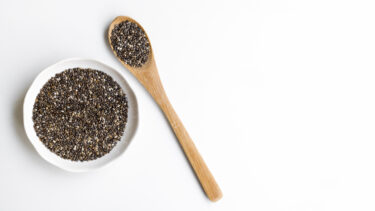
Chia seeds have recently caught on in India and are being used more and more in our country as a superfood. A 35 g serving of Chia seeds contains 6 g of protein and a whopping 13 g of fibre 2. In addition to this, they are also high in nutrients such as calcium, magnesium, and iron and also contain omega-3 fatty acids and numerous antioxidants that can help you stay fit.
Chia seeds are easy to use but make sure that you consume the organic variety. Also, don’t confuse them with basil seeds as they look quite similar to chia seeds. Simply soaking chia seeds in water for a short time and then having them with your favourite beverage can give you the nutritional boost your body deserves. Chia seeds are a great protein source for vegans3.
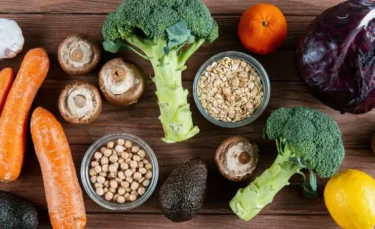
Vegetables are widely considered to just contain vitamins and minerals with a small number of carbohydrates and proteins. However, there are some vegetables that have a greater quantity of protein such as spinach, potatoes, broccoli, asparagus, and even sweet potatoes9. Though the quantity of protein each of these is not comparable to non-vegetarian sources, it still has a significant value of around 5 g of proteins for one cup of cooked vegetables.
It’s time to debunk a common misconception that you need to be non-vegetarian to fulfil your protein requirements. Contrary to popular belief, you can absolutely meet your protein needs through a vegetarian or plant-based diet. Explore the vast array of protein-rich plant foods available and create delicious, nutrient-dense meals that support your health and fitness goals.
Dr. Smita Barode, B.A.M.S, M.S.
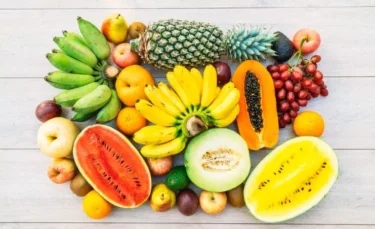
Fruits are generally poorer sources of protein. That being said, fruits such as bananas, guava, and certain berries have a significant amount of protein in them2. However, do not rely on fruits as your primary source of protein instead, choose from one of the options listed earlier in this article.

Edamame is soybeans that have not been fully matured, typically eaten as a side dish in the eastern countries of Asia. Edamame may be found in popular dishes like sushi or can be consumed as a standalone snack/meal. This form of soybean may be cooked and eaten either in the pods or as beans. Due to its simplistic preparation, edamame is a protein-rich vegetarian food that can be easily added to any diet3. Edamame has about 12g of protein per 100g of beans8.
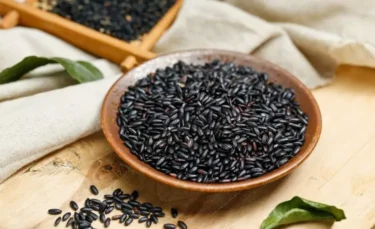
Although not really a species of rice, wild rice is a grain found and grown by the native people of North America and in certain parts of China. This grain is slightly chewy with an almost vegetable-like taste and provides a lot of nutrition including 15%-20% of your daily required zinc and manganese. Wild rice has a protein content of about 14g per serving of 100g, keep in mind that you may eat more than just 100g of wild rice in each meal8. Wild rice may be a great staple protein-rich vegetarian food to add to your diet since it can be consumed regularly (even multiple times a day). You can get diet chart made by a healthcare professional to help you pair wild rice with other dishes to make it more nutritious.

Brussels sprouts are also a good source of protein, in addition to being high in fibre and packed with nutrients, While its protein content of 3-4g per 100g does not make it a competitor to meats and eggs, it is still a high protein-rich option among vegetarian foods8. Add brussels sprouts to your salads for a protein boost, or simply steam or roast them to make it as a wholesome midday meal.

Corn is one of the most cultivated crops today. Corn is used for the production of corn syrup, and cornflour and can also be used as a food source by itself. Sweet corn is a tasty snack to try, whether boiled, steamed or roasted with a delicious slathering of butter on top. Sweet corn has 3.3g of protein content in every 100g serving, with negligible fat and zero cholesterol8.

Avocado is a fruit native to North America that has gained popularity as a superfood due to its highly nutritious nature, both in macronutrients and the vitamins and minerals it contains. Although it was initially popularised in Mexican cuisine, avocado is fast becoming a protein-rich vegetarian food for bodybuilding and fitness routines. Avocados can be eaten as is, just sliced up or added to salads and other preparations like guacamole10.
Did you know that approximately one-fifth of your body weight is made up of protein? Yes, you heard it right! Protein is not just a nutrient but a building block for your very existence. It plays a crucial role in the structure and function of every cell and tissue of the body, from your luscious locks and sturdy nails to your life-sustaining blood, resilient skin and robust bones.
Dr. Siddharth Gupta, B.A.M.S, M.D (Ayu)
Also Read: Natural Home Remedies To Reduce Belly Fat
Yes, eating too much protein can put you at risk of developing kidney stones. Those who eat a higher quantity of saturated fat and red meat on a weekly basis are at risk of suffering from various kinds of heart disorders and colon cancer. Ideally, the recommended daily protein intake for men is 56 grams and for women is 46 grams. However, this can vary depending upon your height and weight.
Summer in India can sometimes be uncomfortable. But there are ways to maintain a healthy diet and fitness regime without having to compromise on food. When the heat gets too much, here are some ‘cool’ ways to include protein in your diet:
> Chilled homemade protein shakes
> Raita with your meals
> Watermelon seeds
> Have more lentil soup
To keep yourself fit, warm, and well-cared for during the cold winter months, you may find it benefitting to eat the following protein items:
> Eggs
> Nuts and seeds
> Lentil soup
> Soy
> Chickpea curry
In order to ensure that you are getting your ‘complete protein source’ through your daily meals, you may find it beneficial to add these foods to your diet:
> Amaranth: A type of pseudocereal (a plant that produces seeds or fruits and are used and consumed like cereal grains) that act as an alternative to gluten-free grain originally a staple in Mayan and Aztec cultures.
> Buckwheat: A plant-based pseudocereal that is a good source of manganese, magnesium, iron, copper, and phosphorus.
> Ezekiel Bread: A highly nutritious bread that contains the goodness of nine essential amino acids because it is made from a combination of soybeans, millet, spelt, lentils, wheat and barley.
> Spirulina: A type of algae-based supplement which are commonly available in health food stores, pharmacies, and online marketplaces.
> Hemp Seeds: Comes from the plant cannabis sativa and is rich in alpha-linolenic acid and essential fatty acid omega 6.
> Nutritional Yeast: a deactivated strain of saccharomyces cerevisiae with a characteristic umami flavour that imparts a cheese-like flavour to pasta, mashed potatoes, and popcorn. Sold in the market as flakes or yellow powder.
> Hummus & Pita bread: Hummus in combination with pita bread is a classic Middle-Eastern dish that provides you with all nine essential acids. This is because hummus is made from ground chickpeas and the dough of pita bread is made from a type of wheat that is low in lysine.
Yes, protein-rich food can contribute to weight gain if consumed in excess, as proteins provide calories similar to other macronutrients. However, protein intake in moderation promotes muscle growth and can enhance satiety, potentially helping in weight management by reducing overall calorie intake.
Yes, consuming high amounts of protein-rich foods, especially those containing purines like mushrooms and green peas, can increase uric acid levels in the body. This is because purines are metabolised into uric acid, which can lead to elevated uric acid levels and potentially contribute to conditions like gout.
A protein-rich diet can cause constipation, particularly if it is low in fibre. Many protein-rich foods, such as meat and dairy, do not contain fibre, which is essential for healthy digestion and regular bowel movements. To prevent constipation, it’s important to balance a protein-rich diet with plenty of fibre from fruits, vegetables, and whole grains.
The body needs protein-rich food to build and repair tissues, produce essential enzymes and hormones, and support immune function. Proteins also play a crucial role in muscle development and overall cellular health.
Yes, you can eat protein-rich foods at night. Consuming protein before bed can help with muscle repair and growth during sleep and may promote feelings of fullness, potentially aiding in weight management. However, it’s important to choose easily digestible protein sources and avoid overeating to ensure a good night’s rest.
After eating protein-rich food, you might feel more satisfied and full, as protein promotes satiety. You could also experience a stable energy level since protein helps regulate blood sugar. Additionally, you might notice improved muscle recovery if you engage in physical activity, as protein supports muscle repair and growth.
Yes, protein-rich food is beneficial for hair growth. Proteins, especially keratin, are essential components of hair structure. Consuming adequate protein supports the production of keratin and promotes strong, healthy hair. A diet low in protein may lead to hair thinning and loss.
Mushrooms are not typically considered a high-protein food. While they do contain some protein, their protein content is relatively low compared to other sources like meat, dairy, legumes, and nuts. However, they are a nutritious addition to a balanced diet, offering vitamins, minerals, and fiber.
Yes, rice does contain protein, but in relatively small amounts compared to other protein-rich foods. For instance, a cup of cooked white rice has about 4-5 grams of protein, while brown rice contains slightly more8. While rice can contribute to your overall protein intake, it is not a primary source of protein in most diets.
Disclaimer: The information provided here is for educational/awareness purposes only and is not intended to be a substitute for medical treatment by a healthcare professional and should not be relied upon to diagnose or treat any medical condition. The reader should consult a registered medical practitioner to determine the appropriateness of the information and before consuming any medication. PharmEasy does not provide any guarantee or warranty (express or implied) regarding the accuracy, adequacy, completeness, legality, reliability or usefulness of the information; and disclaims any liability arising thereof.
Disclaimer: The information provided here is for educational/awareness purposes only and is not intended to be a substitute for medical treatment by a healthcare professional and should not be relied upon to diagnose or treat any medical condition. The reader should consult a registered medical practitioner to determine the appropriateness of the information and before consuming any medication. PharmEasy does not provide any guarantee or warranty (express or implied) regarding the accuracy, adequacy, completeness, legality, reliability or usefulness of the information; and disclaims any liability arising thereof.
The idea of taking vitamin supplements is not new, but the COVID-19 pandemic brought renewed attention to their potential benefits. These supplements may support our natural immunity and be beneficial against infections such as those caused by the coronavirus.
Vitamins are essential building blocks of the body and help maintain good health. Many people believe that multivitamin supplements can help make up for poor eating habits and may even reduce the risk of chronic diseases.
Even when we try to eat well, exercise regularly, and get enough sleep, we can still fall short on key nutrients.
The demands of a busy lifestyle may lead to stress, inadequate rest, and less-than-ideal diets which can all take a toll on our health1.
Multivitamins are a combination of different vitamins and minerals typically available in food sources. Taking a multivitamins daily can help us make up for nutritional gaps and support our health in a natural way. They offer a convenient solution to meet your body’s daily requirements for key nutrients, helping ensure you get the vitamins and minerals you need every day2.
Not everyone needs multivitamins, especially if they maintain a balanced diet and are in good health. However, there are situations where multivitamins are recommended. For example, women of childbearing age are advised to take folic acid daily to support reproductive health and help prevent birth defects.
Taking multiple vitamins personalised for your needs is better than taking one multivitamin, but finding a specific supplement and vitamin routine can be difficult and time-consuming. In such cases, it’s better to take a single capsule of a multivitamin than taking multiple pills of different vitamins3.
As the name suggests, multivitamins are supplements that contain various vitamins and minerals. The human body requires thirteen vitamins and sixteen minerals to support healthy growth.
In addition to these core nutrients, many multivitamin formulas also include other beneficial compounds like herbs, amino acids, and fatty acids4.
When our bodies don’t get the nutrients they need, it can make us feel weak and lethargic. A regular course of multivitamin capsules as per your doctor’s advice can help you regain your energy. Combined with a balanced diet, regular exercise, and healthy lifestyle habits, multivitamins can play a key role to keep you energetic and fit5.
The multivitamin tablets can help support and strengthen the immune system, especially when they contain nutrients like vitamin C, vitamin E, and vitamin D. Vitamin C and vitamin E are antioxidants that may help to reduce allergy symptoms1.
The heart is a vital organ of the body and keeping it healthy is necessary. Various studies2 suggest that high-quality multivitamin tablets use may reduce cardiovascular diseases. Vitamins B1, B2, B6, K1, niacin, and magnesium all play a role in cardiovascular health.
Vitamin A is also known as an eye vitamin because of its benefits. It helps to improve eye sight and reduce age-related macular degeneration that may cause permanent eye damage. One study2 suggests vitamins, minerals, and antioxidants may slow down the progression of macular degeneration.
Free radicals in the body can be harmful, as they contribute to muscle ageing and other age related problems. These free radicals can be neutralised by antioxidants, which are present in multivitamin capsules. Regular intake of multivitamins can support your body’s defense against oxidative stress and promote healthier aging5.
Research2 suggests taking multivitamins may have potential protective effects in specific groups of cancer. But take these supplements as per your doctor’s advice.
Some vitamins and fatty acids have shown to slow down or help prevent memory loss. For example, vitamins like vitamin B12, omega-3 fatty acids, herbal supplements such as Ginkgo Biloba may help support brain function2,5.
Multivitamin tablets may have the potential to significantly reduce stress and depression symptoms due to the combination of the vitamins and minerals included in them. Vitamin B supplements, in particular, may help stimulate the nervous system. Getting adequate vitamins and minerals may improve the brain functions responsible for mood regulation5.
Vitamins and minerals play a vital role in maintaining healthy, glowing skin. Nutrients like vitamin E and vitamin C are especially beneficial—they help nourish the skin, retain its natural moisture, and protect it from dryness. These vitamins also act as antioxidants, defending the skin against damage from free radicals and environmental stressors, which can speed-up aging. Regular intake of these nutrients may support a smoother, more radiant complexion6.
Hair requires extra care, especially in winters. Vitamins like B, C, and E, along with some essential minerals are important for the healthy growth of hair. These nutrients not only support the hair’s strength and vitality but are also effective in reducing hair fall, helping you maintain thicker, healthier strands6.
I highly recommend (unless specified on the label) avoiding multivitamins containing a high dose of retinol, which may be present in the form of acetate or palmitate. In terms of your bones and liver, retinol may be detrimental to your health13.
Dr. Smita Barode, B.A.M.S M.S.
In light of recent times, the Covid-19 pandemic has negatively affected our lifestyle. Not only are there higher risks of infection but recovery from covid may sustain long-lasting side effects like breathing problems, weaker joints, fatigue, and shortness of breath. Hence, doctors and researchers have recognised the importance of nutritional supplements like zinc, vitamin C, and vitamin D in supporting overall health and recovery.
It’s essential to note that these supplements are not meant to replace a healthy diet but rather to serve as an additional layer of protection against COVID-19 and other health concerns. A balanced diet rich in carbohydrates, proteins, and fats is still recommended, with multivitamin supplementation acting as a supportive boost. In many cases, food shortages and unmet dietary needs have heightened the demand for vitamins and supplements.
Vitamin D, for instance, has been shown to enhance immunity during epidemics like the flu and can support bone health in both children and older adults. It helps maintain adequate vitamin D levels, which are crucial for immune function. Nutritional supplements have also proven useful in meeting the Recommended Dietary Allowances (RDA), acting as a safety net against various health issues7,8.
Vitamin C may be particularly beneficial for managing the aftereffects of COVID-19, including inflammation, tissue damage, and heart-related complications. It’s important to consult a healthcare provider before taking high doses7. Zinc, which is widely accessible and affordable, has been shown to shorten the duration of infections and improve recovery times, making it especially beneficial for families in lower-income brackets9.
It’s important to note that multivitamins are a valuable source of multiple vitamins, however, they may bring unwanted side effects if they are not used with caution. Research12 suggests that in case of overconsumption of vitamin D, i.e., more than 4,000 IU or 100 µg/day, can raise calcium levels, increasing the risk of kidney stones. I strongly recommend the consumption of multivitamins with a physician’s consent.
Dr. Rajeev Singh, BAMS
Vitamins are broadly divided into two types based on how the body metabolises them, here is a quick guide on both types8:
I highly recommend supplementing with calcium and vitamin D to help build bones and stall the occurrence of osteoporosis in women who have reached menopause. This may help them maintain bone health with advancing age11.
Dr. Siddharth Gupta, B.A.M.S M.D (Ayu)
While our bodies can usually obtain the necessary vitamins and minerals from a well-balanced diet, multivitamin supplements can still offer various benefits. However, it’s important to consult with your doctor before starting any multivitamin regimen. Take them only when needed and as recommended by your healthcare provider10.
Some individuals may experience side effects after taking multivitamins, such as, constipation, dark stools, diarrhoea, nausea, vomiting and abdominal pain after taking multivitamins. You must always follow the recommended dosage and avoid exceeding it. These side effects are typically temporary and may subside as your body adjusts to the supplement. However, if any of these symptoms persist or worsen, it’s crucial to contact your doctor or pharmacist for further guidance.
Multivitamins which contain zinc, iron, or calcium, can sometimes cause symptoms of GERD, such as heartburn. To minimise this risk, avoid taking multivitamins on an empty stomach.
In general, multivitamins should be taken only when there is a nutrient deficiency. Otherwise, a well-balanced diet containing all the essential nutrients is typically sufficient. It’s important to consult with a doctor to assess your specific needs and get personalised advice before starting any supplementation.
Multivitamin tablets may support overall health by providing nutrients that might be absent in the diet. They can be particularly helpful for individuals with specific needs, such as vitamin D supplementation in areas with limited sunlight exposure.
No, multivitamin tablets should not be considered a substitute for a healthy, balanced diet. They may supplement the diet where there are deficiencies, but whole foods provide additional benefits like fibre and bioactive compounds that multivitamins do not.
The best to take will depend on factors like age, sex, dietary habits and specific health needs. Reading labels, considering reputable brands, and most importantly, seeking professional medical advice will help you in making an appropriate choice.
Yes, there are multivitamin tablets specifically formulated for children, which may be beneficial in certain cases. However, it’s crucial to consult with a paediatrician or healthcare provider to determine if supplementation is necessary and to ensure appropriate dosing for the child’s age and health needs.
Disclaimer: The information provided here is for educational/awareness purposes only and is not intended to be a substitute for medical treatment by a healthcare professional and should not be relied upon to diagnose or treat any medical condition. The reader should consult a registered medical practitioner to determine the appropriateness of the information and before consuming any medication. PharmEasy does not provide any guarantee or warranty (express or implied) regarding the accuracy, adequacy, completeness, legality, reliability or usefulness of the information; and disclaims any liability arising thereof.
Many individuals frequently experiment with various diets to maintain an ideal body weight. For those who struggle with restrictive or complicated plans, simple, home-based dietary practices using commonly available ingredients may offer supportive benefits. These methods, when adopted sensibly and under guidance, can complement a healthy lifestyle without depending on expensive supplements or extreme regimens.
While achieving and maintaining a healthy weight is important for individuals who are overweight or obese, it is equally essential to ensure that the diet remains nutritionally balanced. Some diets excessively restrict macronutrients like fats and carbohydrates, which may adversely affect metabolism and overall physiological functions. A sustainable plan should aim for moderation rather than elimination, supporting long-term health goals
So, which diet should you follow? What home remedies can help you to control your weight? What are the best supplements for weight loss? Read on to find the answers –

Lemon and honey are widely used household ingredients and are often included in morning routines. A warm glass of lemon water with a small amount of honey may support hydration, aid digestion, and provide a refreshing start to the day. While these ingredients have traditional uses and some health benefits, there is limited scientific evidence to suggest that they directly lead to fat loss. However, when incorporated into a balanced diet and healthy lifestyle, they may support general well-being1.
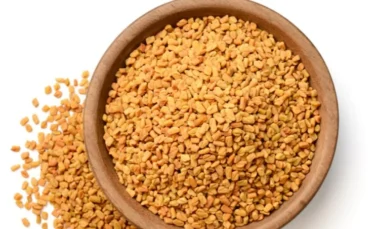
Many traditional Indian spices such as fenugreek seeds (methi), carom seeds (ajwain), and black cumin seeds (kali jeera) have been used in Ayurvedic and folk practices for digestive and metabolic support. Some preliminary studies suggest that these spices may help improve digestion and support metabolic health, which can indirectly aid in weight management. However, their role in directly reducing fat—especially in specific areas like the belly, is not conclusively proven.
A practical way to incorporate these spices is by dry roasting equal parts of fenugreek, carom, and black cumin seeds, grinding them into a fine powder, and consuming a small amount with warm water once daily. While this may help in improving digestion and metabolic support, sustainable weight loss primarily depends on balanced nutrition, physical activity, and overall lifestyle modifications.

Cinnamon (Dalchini) is a Cinnamon (Dalchini) is a commonly used spice in Indian cooking, known for its distinct aroma and flavor. Some studies suggest that cinnamon may help improve insulin sensitivity and reduce blood sugar spikes, which could indirectly support weight management. However, it should be considered a supportive addition rather than a standalone solution for weight loss2.
A traditional method to include cinnamon in your routine is by preparing a simple infusion. Warm a glass of water, add 1–2 small cinnamon sticks, and let it steep. Once lukewarm, add a teaspoon of honey, mix, and strain. Consuming this on an empty stomach may offer digestive and metabolic support. However, this should complement a healthy diet and lifestyle, not replace them.
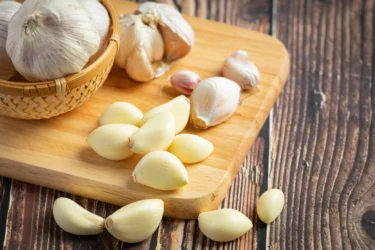
Garlic, a common kitchen ingredient, is well-known for its antimicrobial and anti-inflammatory properties. Some traditional practices suggest that consuming 1–2 raw cloves of garlic in the morning may support metabolism and overall health, which could indirectly aid in weight management. Although the strong flavor and smell may be challenging at first, regular use can become tolerable over time. It’s advisable to rinse your mouth afterward to reduce lingering odour3.

The sugars naturally found in fruits and vegetables are generally healthier than added or refined sugars. If your goal is weight loss, it is advisable to minimise your intake of processed sugars found in sweets, ice creams, and sugary beverages. Instead, focus on whole fruits and vegetables to satisfy your sweet cravings, as they come with the added benefit of fiber, vitamins, and minerals.
For example, vegetables like onions release a mild natural sweetness when sautéed slowly. This can enhance the flavour of your dishes without needing to add refined sugar. Similarly, carrots and certain types of pumpkin also contain naturally occurring sugars that contribute to a subtle sweetness. Using these ingredients creatively can help reduce your reliance on added sugars in cooking.

Drinking an adequate amount of water each day is a simple yet important factor in supporting healthy weight management. Many people do not consume enough water because they may not be aware of the recommended amounts or only drink when they feel thirsty4.

Getting adequate sleep is more of a lifestyle choice than a home remedy, but it is a simple and important step that everyone can adopt with some effort. Despite busy schedules and competing priorities, aim for at least 8 hours of sleep each night. Adequate sleep is as essential as maintaining a balanced diet for effective weight management5.
Sleep plays a critical role in regulating bodily functions, including hormone balance and digestive health. It helps maintain a healthy metabolic rate, which is important for reducing excess body fat and supporting overall weight loss.

Psychological factors play a significant role in shaping our lifestyle choices, including eating habits. The way our brain perceives our environment affects how much food we consume. For example, the size of the plate can influence portion size using a large plate may increase the risk of overeating.
This occurs because the brain associates plate size with the amount of food required. Larger plates tend to encourage larger portions, while smaller plates promote smaller servings. Eating from a smaller plate may help you feel satisfied with less food. Therefore, switching to a smaller plate can be a simple and effective strategy to support weight management6.

This eating pattern has been supported by research globally. Instead of consuming three large meals, breakfast, lunch, and dinner, try eating smaller, lighter meals every 3 to 4 hours. Consuming six lighter meals throughout the day helps prevent your stomach from being empty for long periods, which can support better digestion and energy levels7.
Eating frequent smaller meals can help prevent overeating. Long gaps between meals, such as between breakfast and lunch, can lead to excessive hunger and result in consuming larger portions. Having a small snack between meals reduces hunger and makes it easier to control portion sizes during main meals.
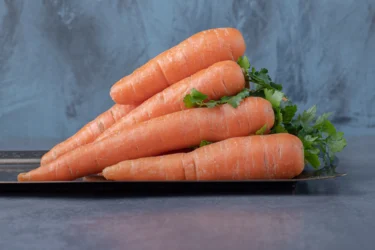
Meat, chicken and poultry should always be consumed only after proper cooking. However, some vegetables such as tomatoes, lettuce, spinach, carrots, and corn provide added nutritional benefits when eaten raw. Consider making a salad with these vegetables daily. Raw vegetables are an excellent source of fibre, which promotes healthy digestion. Efficient digestion is essential for the breakdown of fats and supports weight loss.
When consuming raw vegetables, it is advisable to choose organically grown produce whenever possible. Organic vegetables are free from insecticides and pesticides, which can be harmful when ingested raw. Incorporating raw organic vegetables into your diet is an effective natural strategy to support weight loss. Always ensure vegetables are thoroughly washed before consumption.

Proper chewing is essential for good digestion and helps prevent overeating. Studies show that people who eat slowly and chew their food thoroughly tend to consume fewer calories compared to those who eat quickly without chewing properly9.
Chewing breaks down food into smaller pieces and mixes it with saliva, which helps initiate digestion. When food is not chewed properly, the stomach takes longer to digest it, which may contribute to digestive problems and potential weight gain.
Additionally, eating slowly increases the likelihood of feeling full after consuming smaller portions.
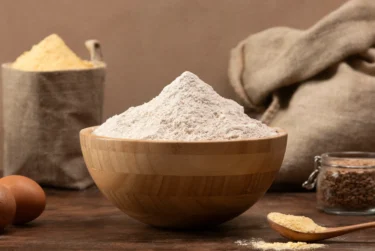
Grains are a staple food in India, consumed daily either in whole form or as flours. Whole grains offer the most health benefits. In contrast, refined grains or flours like maida are less healthy and may contribute to weight gain because they consist mainly of simple carbohydrates10. This is because the refined flours are made out of simple carbohydrates.
Whole grain flour (atta) is more beneficial as it contains a good amount of fibre along with carbohydrates. This fibre supports healthy digestion and bowel regularity. For rice, it is better to choose brown rice over white rice for the same reasons.

While this is not strictly a home remedy, quitting smoking is an important step if you want to lose weight. Smoking negatively impacts your health and can hinder your efforts to reduce excess weight. To support your weight loss and overall health, consider quitting smoking11.
Nicotine and other chemicals in cigarettes harm your body and can reduce your motivation and ability to exercise regularly. Quitting smoking can improve your overall health and make it easier to adopt an active lifestyle. Try to replace smoking with healthy habits such as a morning walk or jog.

Stress and tension are common in today’s fast-paced world, where many people juggle multiple responsibilities. While work and income are important, it is equally essential to take time to enjoy life’s simple pleasures. Studies show that individuals experiencing high stress levels may find it harder to lose weight compared to those who are more relaxed.
One effective approach is to practice meditation and breathing exercises regularly. These techniques can promote relaxation and support your weight management efforts. Breathing exercises also improve oxygen intake, which can enhance overall well-being12.
Another effective way to reduce stress is to plan family outings or vacations. Taking regular breaks throughout the year can help you feel rejuvenated and improve your overall happiness.

Yoghurt, a common ingredient in Indian kitchens, can be homemade or purchased from stores. It is most beneficial when consumed plain, without added sugar or flavoring. Made by fermenting milk, yoghurt contains beneficial probiotics that support gut health, along with essential nutrients found in milk13.
Yoghurt can be eaten on its own or used as a dressing for salads. It promotes the growth of healthy gut bacteria, which aid digestion. Additionally, yoghurt helps increase feelings of fullness, supporting appetite control without adding excessive calories.
In my experience of all the remedies for weight loss, Intermittent fasting for 16 hrs a day often gives good results in people who are otherwise healthy. But people with underlying conditions like diabetes, heart disease and kidney disease should not try fasting without consulting their doctor.
Dr. M.G. Kartheeka, MBBS, MD(Pediatrics)

Natural fruit and vegetable juices can be a helpful way to meet your body’s nutritional needs without consuming excessive calories. These beverages are typically low in added sugars and fats, which may assist in managing your overall intake of high-calorie foods. It is important to note, however, that while such drinks are often marketed as ‘juice cleanses for weight loss’, they do not cleanse the body in a medical sense. Rather, their benefits are generally linked to reduced calorie intake and the provision of essential vitamins and minerals, which may be especially useful when following a calorie-controlled diet14.

Crash diets are extreme eating plans that often involve prolonged fasting or the exclusive consumption of fruit juices. Such approaches can be harmful, as they may lead the body to break down muscle tissue in addition to fat. Moreover, research suggests that any weight loss achieved through these methods is frequently temporary, with individuals often regaining the lost weight over time. As a result, these diets typically do not offer sustainable or long-term health benefits15.
Rather than following extreme diets, it is advisable to consume regular meals prepared with minimal oil, sugar, and salt. Incorporate a variety of vegetables and fruits into your daily routine, along with sources of protein such as eggs, poultry, or lean meats. Adopting and maintaining this kind of balanced eating pattern, alongside a healthy lifestyle, can support overall well-being and may contribute to gradual and sustainable weight management.
Also Read: Mounjaro (Injection): Uses, Side Effects, Dosage, and How It Works
Consider trying these home-based suggestions and take note of how they work for you. If adopting all of them at once feels overwhelming, begin with just a few and focus on gradually integrating them into your daily routine. Consistent, steady efforts often lead to meaningful and lasting results. To make the process easier, establish a simple daily schedule that accommodates these practices without demanding too much of your time. As these tips are intended to be practical and manageable, they should fit well even within a busy lifestyle.
Also Read: Ajwain: Uses, Benefits, Side Effects, and More!
The most effective way to manage weight at home involves a combination of a calorie-controlled diet, regular physical activity, and adequate sleep. The suggestions provided throughout this article are intended to support this holistic approach. When implemented consistently, these practices can contribute to improved overall health and gradual, sustainable weight management.
Yes, a protein-rich diet would be low in fats and would contribute to increased muscle mass and fat reduction. Individuals can have a protein-rich diet to lose weight (by reducing fat consumption) and to gain weight (by increasing muscle mass).
Rapid weight loss is generally not advisable, as it often involves extreme dietary practices such as prolonged fasting or the elimination of essential macronutrients. These methods can be detrimental to your overall health and may not result in sustainable weight loss. In many cases, any weight lost through such approaches is quickly regained once the restrictive diet is discontinued. A gradual, balanced approach is far more beneficial in the long term.
Disclaimer: The information provided here is for educational/awareness purposes only and is not intended to be a substitute for medical treatment by a healthcare professional and should not be relied upon to diagnose or treat any medical condition. The reader should consult a registered medical practitioner to determine the appropriateness of the information and before consuming any medication. PharmEasy does not provide any guarantee or warranty (express or implied) regarding the accuracy, adequacy, completeness, legality, reliability or usefulness of the information; and disclaims any liability arising thereof.
Your skin is not just about how you look; it also shows how healthy you are inside. A glowing and clear complexion means your body is well-nourished, your hormones are balanced, and you are properly hydrated. More than just appearance, healthy skin protects you from pollution, UV rays, and harmful germs.
Stress, pollution, and poor lifestyle choices take a toll on our overall well-being, and our skin often reflects these effects. Maintaining glowing skin is not just about appearance, it’s a key indicator of both physical and emotional health. By understanding the deep connection between skin health and overall wellness, you can take steps to nourish your body and mind.
While there are various skin and beauty care products available in the market, nothing beats the goodness of natural products and healthy habits. Let’s talk about some easy home remedies that can help you get glowing skin!
Friendly Reminder: The information shared here is for educational purposes only, and the reader should consult a registered medical practitioner before implementing any changes to their health routine.
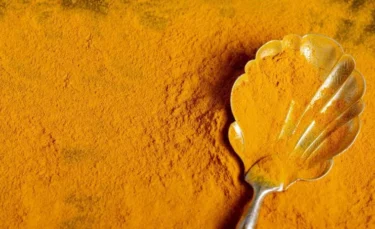
Turmeric has natural antibacterial properties[3] and is a powerful antioxidant, making it a go-to spice for maintaining clear and glowing skin. It has curcumin, an anti-inflammatory agent that helps to get rid of hyperpigmented marks. It gives your skin a glow and rejuvenates it[1].
Turmeric eliminates free radicals that damage the skin and enhances collagen production, which helps keep the skin supple and fresh.
How To Use Turmeric for Your Skin

Honey is an excellent moisturizer and helps keep the skin well-hydrated. Honey’s anti-bacterial properties help ward off infections and reduce blemishes and acne at home. Honey ensures spotless skin. It is rich in antioxidant properties and helps fade pigmentation and scars[7].
How To Use Honey for Your Skin

Olive oil acts as an excellent moisturizer for dry skin. It helps prevent the skin from aging early. It’s great for the skin and gives it a nice, healthy glow, suitable for people of all age groups. Olive oil is one of the best oils for massaging dry skin[4].
How To Use Olive Oil for Your Skin

Oranges are rich in Vitamin C and help with detoxification. A glassful of orange juice daily helps clean the complexion and rejuvenate the skin.
How To Use Orange Juice for Your Skin

Tyrosine, the melanin-controlling hormone, leads to the darkening of the skin. Milk counters the effects of Tyrosine in the skin and promotes a skin full of glow. Raw milk is one of the most accessible ingredients for getting good-looking skin.
How To Use Milk for Your Skin

Besan has always been a trusted remedy for healthy and glowing skin. Besan or gram flour acts as a natural exfoliator and helps remove dead skin cells.
How To Use Besan for Your Skin
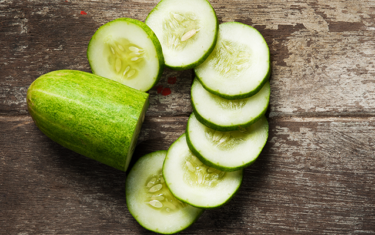
Dry skin, chapped skin, dark circles? Include cucumbers not only in your diet but also in your beauty regimen. Cucumber has the same pH level as that of our skin. It helps replenish the skin’s protective layer and keeps the skin hydrated, thus promoting glowing skin[9].
How To Use Cucumber for Your Skin
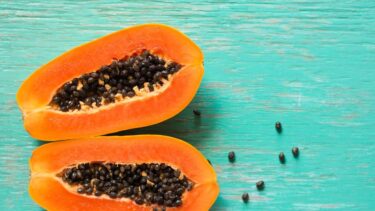
This one comes with a secret beauty ingredient – papain. Not only is papain good for your liver, but it works wonders for your skin. This enzyme has skin-lightening properties and can lighten blemishes and scars if applied[8]. Papaya also acts as a gentle exfoliator and helps remove inactive protein cells and dead skin cells. It gives excellent results and keeps the skin looking young and healthy with a beautiful glow.
How To Use Papaya for Your Skin

Aloe vera is rich in vitamins and antioxidants for our skin. It keeps skin glowing and soft and also helps prevent acne. Aloe Vera application on sunburns helps in faster healing[6]. Aloe vera application on the skin helps to keep skin hydrated, improves elasticity and prevents the development of wrinkles. You can make aloe vera juice at home or add aloe vera gel to smoothies and other drinks. It can also be applied directly to the skin.
How To Use Aloe Vera for Your Skin

Lemons are rich in vitamin C and citric acid. Vitamin C is a powerful antioxidant. It boosts collagen production, maintaining the elasticity of the skin. It also helps to lighten our skin tone and moisturise our skin. It works amazingly on darkened knees and elbows.
How To Use Lemon for Your Skin
If you wish to apply lemon on your skin, please perform a patch test initially.
The best way to use lemons for skin is to consume them as lemonade or squeeze them on your salads and dals.

Yoghurt, rich in lactic acid, nourishes and moisturizes the skin while helping to reduce tan and dark circles. It also soothes sunburns, making it a great natural remedy for healthy, radiant skin.
How To Use Yoghurt for Your Skin
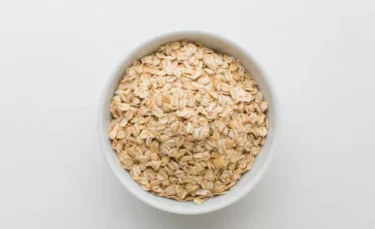
Oats are an efficient anti-tanning agent and may help lighten the skin tone while also acting as an excellent exfoliator. They are also rich in zinc, which is essential for fighting off pimples. They help absorb the excess oil on the skin and are essential to acne treatments. They also help treat dry and itchy skin[5], as beta-glucans help moisturise it. Oatmeal baths or oatmeal moisturizers are beneficial for sensitive skin.
How To Use Oats for Your Skin
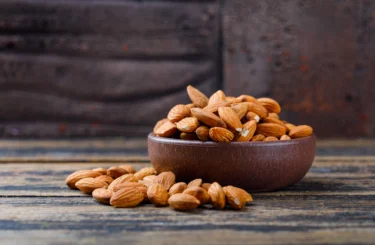
Almonds are rich in Vitamin E and antioxidants. Regular massage with almond oil keeps our skin glowing and healthy. It also prevents fine lines and wrinkles.
How To Use Almonds for Your Skin
You can also massage your skin with almond oil for 5 to 10 minutes daily for younger-looking skin.

Coconut oil is rich in antioxidants and fatty acids[2]. It reduces inflammation, is a lightweight oil and does wonders for almost all skin types.
How To Use Coconut Oil for Your Skin

Bananas are great for our skin. They are rich in potassium, vitamins A and B. They hydrate and moisturise our skin. They also have powerful anti-ageing effects.
How To Use Bananas for Your Skin

Saffron is excellent for our skin. It helps in lightening the skin tone and makes it glowy. It is effective in treating acne, blemishes and blackheads. Saffron makes our skin smooth and lightens dark circles[1].
How To Use Saffron for Your Skin
Many people are in the habit of reaching for their bottle of body lotion when they run out of their face cream or, in general, keep one product on their shelf and use it all over, thinking that all skin care products have the same application and make. But this is not the case.
Body lotions are thicker and not meant for the face. They are formulated for your body, while face creams are lighter and made up specially to avoid any breakouts on the face. Using body lotion as face cream can lead to breakouts or allergic reactions and make the skin look oily. Always use a face cream that is more gentle and fragrance-free.
Sugar is often used as a home remedy for glowing skin in various kinds of scrubs, such as your lips and the rest of your body. But this is best avoided as sugar particles tend to be larger and more abrasive, causing micro-tears.
Hot water is not advised for washing your hair as it can increase hair fall and dry the scalp. Similarly, hot water is not suitable for your skin as it can reduce natural moisture and might even cause scalding. For patients of eczema & psoriasis, hot water is a big no! It worsens the itching and discomfort.
Some people use toothpaste to cover up zits or remove blackheads as skin hacks, but this is highly counter-productive as toothpaste can irritate the skin and leave marks.
At some point, we’ve all used soap to wash our face. However, just like body lotion differs from face moisturizer, not all skincare products serve the same purpose. Face washes are designed to be gentle and remove only excess oil, while soap can be harsh and strip away natural moisture. While soap works well for the body, it’s best to use a mild cleanser for your face.
Another skin hack to get rid of blackheads is applying baking soda. But beware, baking soda can strip your skin of its pH balance, which is crucial to safeguard your skin from bacteria and germs. Baking soda is alkaline, and skincare experts do not recommend using it on the face.
Some simple activities at home can also boost your skin quality with surprising results.
Getting regular and restful sleep is the primary activity to help you achieve that flawless look. Restless sleep, and that too for a few hours, only affects your skin negatively. When you sleep, your cells can flush out the toxins produced during the day. This ensures that you wake up with refreshed and plush skin. Sleep experts recommend 7 – 8 hours of sleep every day for optimal brain function and improved health[10].
Another vital activity to keep your skin looking healthy is to stay hydrated by drinking enough water throughout the day. Try to drink at least 2 litres of water daily, apart from other fluids, since proper hydration is essential for healthy and glowing skin[11].
Daily exercise goes a long way towards improving your skin. It helps you stay fit, stimulates your heart and blood circulation, and is vital for maintaining a healthy body overall. Your skin is the largest and most nutrient-hungry organ in your body, and these activities can help you properly take care of it!
Consume a healthy, balanced and nutritious exercise. Cut down on excess salts, sugars and trans fats. The unhealthy effects of fried and packaged foods can appear on your skin. Eat healthy to see that reflection as a youthful glow on your skin.
Also Read: White Patches On Skin: Causes, Symptoms And Home Remedies
Achieving glowing skin doesn’t have to be complex or expensive. With these 16 simple & effective home remedies, you can naturally nourish your skin using ingredients readily available in your kitchen. It is important to remember that consistency is key. Make these remedies a part of your everyday skincare routine, and you’ll notice the difference quickly.
Also Read: Simple Home Remedies For Fungal Infections!
Yes, in some people it can. Around the world, for many centuries, people have been using turmeric for various skin problems due to its antibacterial and anti-inflammatory properties. Raw turmeric pasted or grounded has been used profusely across Indian households to treat common conditions such as boils, burns, bruises, blisters, eczema, herpes, insect bites, wounds, etc. However, those rare few with very sensitive skin may be allergic to turmeric and can experience reactions such as inflammation, scaly skin, burning, soreness or itching combined with redness. To avoid this, you must conduct a small patch test on the back of your palm.
Aloe vera is the most effective for managing mild sunburn. Aloe vera comprises 19 of 20 essential amino acids that help soften hardened skin cells. Furthermore, it boosts collagen production to maintain elasticity and dryness and prevents skin flakiness and peeling following sunburn. Aloe vera helps to soothe irritated skin after sunburn while simultaneously moisturising it. To treat sunburn at home, you can use aloe vera gel procured from the plant leaf or purchase 100% aloe vera gel from the pharmacy. In case of severe sunburn, consult a dermatologist.
Consume a healthy and balanced diet.
Eat enough vitamin C-enriched foods such as papayas, oranges, kiwi, strawberries, broccoli, guava, sweet potatoes and blueberries to get your share of antioxidants.
Avoid crash diets that lead to unhealthy skin marked by wrinkles, stretch marks, pigmentation & dullness.
Consume omega three and omega-six fatty acid-enriched foods such as fish, chia seeds and walnuts.
Eat more phytoestrogens, which can be found in tofu and soya
Lemon is a strong irritant for the skin. It makes skin sensitive and often leaves the skin burnt.
Applying lemon juice undiluted on the skin eventually leads to more damage.
If you ever want to add lemon to skin care, lemon zest can be added to face packs. Or dilute 3-4 drops of lemon juice in pure aloe vera gel & honey.
Disclaimer: The information provided here is for educational/awareness purposes only and is not intended to be a substitute for medical treatment by a healthcare professional and should not be relied upon to diagnose or treat any medical condition. The reader should consult a registered medical practitioner to determine the appropriateness of the information and before consuming any medication. PharmEasy does not provide any guarantee or warranty (express or implied) regarding the accuracy, adequacy, completeness, legality, reliability or usefulness of the information; and disclaims any liability arising thereof.
Being a foodie is common among Indians and so are digestive issues. Indigestion, gas, bloating, hiccups, heartburn, stomach pain, ulcers, and nausea are some of the common features of digestive problems. These are the frequent problems arising from an unhealthy lifestyle, which includes binge eating, smoking, drinking alcohol, sleep disorders, eating junk, and stress.
The discomfort makes these problems hard to ignore, but it is also not convenient to visit the doctor or pharmacy so frequently for the recurring problems.
While some medical conditions may lead to digestive issues, some of the most common causes of digestive issues include lifestyle factors like stress, excessive dairy consumption, an inactive lifestyle, and inadequate fibre in the diet.
Gastrointestinal problems are commonly caused by:
Foods That May Cause Digestive Problems: Carbonated drinks, beans, artificial sweeteners, potatoes, pasta, eating or drinking too fast, using a straw, and swallowing excessively.
Diseases That May Cause Digestive Problems: Lactose allergy, gluten allergy, irritable bowel syndrome (IBS), Crohn’s disease, gastroesophageal reflux disease (GERD), and peptic ulcers.
Frequent episodes of digestive troubles can be attributed to various factors such as IBS, infection, neurological issues, or hormonal imbalances. Often, these symptoms are intertwined with signs of anxiety.
Dr. Arpit Verma, MBBS, MD (Pharmacology)
The symptoms of digestive problems are usually mild and short-lived and may not require medication; however, there are some simple home remedies that can help you reduce the symptoms. So, here are some home remedies that may relieve your digestive problems.

A lot can happen with a cup of tea. Although, targeting the root cause of your digestive problems is the best approach, if you need relief for minor stomach issues and temporary bouts of discomfort, then here is a warm cup of tea that may save your day.
You can prepare these teas by brewing one or more herbs commonly found in the kitchen, as listed below. You may also add honey to some of the teas.
Other ingredients, such as ajwain (carom seeds), caraway (shahi jeera), liquorice (mulethi), and holy basil (tulsi) can also be brewed along with ginger to help ease digestive issues like indigestion, gas, bloating, cramps and nausea.
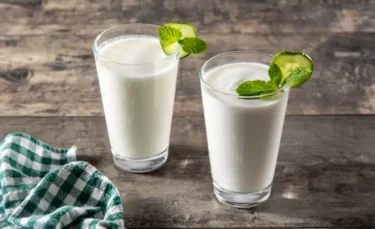
Some other drinks that may relieve digestive issues include:
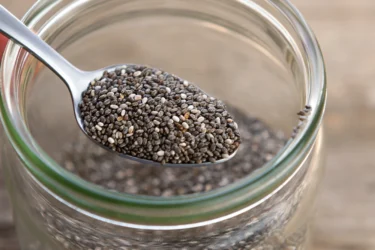
Mucilage is a slimy and slippery substance found in certain plants. The mucilaginous substance swells in water and is bland in taste. When consumed, it forms a protective layer over the inflamed lining or sore surface of the stomach that not only protects it from further damage by acid but also aids in its healing. Few examples are listed below:

People with an upset stomach, gas, acidity, heartburn and other digestive troubles may also get relief by directly consuming powders of ingredients from the kitchen, such as fennel seeds, carrom, caraway, and coriander. Few examples are listed below:

In cases, where one cannot drink or do not feel like consuming anything, the following approach may benefit in relieving the symptoms of digestive trouble.
Also Read: Causes Behind Recurring Stomach Pain
Here are a few remedies you can try apart from the ones mentioned above:
If a person has recurrent gastritis, then along with using home remedies, they should definitely visit their physician who can give them a treatment regimen for the bacteria Helicobacter pylori (one of the causes of gastritis).
Dr. Nikhil Yadav, MBBS MD,CCEBDM
As mentioned in the beginning, digestive issues are caused by a variety of dietary and lifestyle choices. The discomfort and pain of digestive problems may be mitigated by simply cutting out these harmful factors from your life. Limiting the intake of or quitting coffee, soft drinks, alcohol, tobacco, smoking, and excessive junk foods will go a long way towards curtailing the risk of stomach-related health conditions.
Healthy habits like eating regularly, avoiding binge eating, sleeping regularly, and getting some form of physical exercise daily can further lower your chances of developing a digestive problem in the long term. Stay away from foods that are hard to digest as well as acidic foods like lime and baking soda.
It should be noted that some people may experience digestive issues like GERD or other serious gastrointestinal conditions despite maintaining a healthy lifestyle. This may be unavoidable and the only solution is to seek professional medical treatment. The above-mentioned home remedies may provide relief from occasional bouts of gas and other symptoms of digestive troubles. However, if they fail to provide, relief then one must seek medical help immediately.
Also Read: Natural Home Remedies for Food Poisoning
Some common symptoms of GERD include heartburn, chest pain, difficulty swallowing, and regurgitation of food or sour liquid. It may also cause chronic cough, disrupt sleep, or worsen asthma if you have acidity at night-time.
One should seek immediate medical care if he or she experiences chest pain, shortness of breath or jaw or arm pain. If you experience severe or frequent GERD symptoms and take over-the-counter medications frequently or if home remedies are not working for you, you must consult a doctor.
Yes, smoking contributes to many common disorders of the digestive system, such as heartburn and GERD.
Disclaimer: The information provided here is for educational/awareness purposes only and is not intended to be a substitute for medical treatment by a healthcare professional and should not be relied upon to diagnose or treat any medical condition. The reader should consult a registered medical practitioner to determine the appropriateness of the information and before consuming any medication. PharmEasy does not provide any guarantee or warranty (express or implied) regarding the accuracy, adequacy, completeness, legality, reliability or usefulness of the information; and disclaims any liability arising thereof.
Next Page »« Previous Page